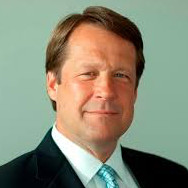The Shift in SPAC Deal Fee Structures
In this episode of The SPAC Podcast, James Graf, CEO of Graf Global Corp., shares his perspective on how backend deal costs and promote economics are evolving for SPAC sponsors and founders. With over a decade of experience leading multiple SPACs and a background in investment banking at Deutsche Bank and Merrill Lynch, James brings a seasoned view on what’s driving competitive changes in the market.
From the traditional three-and-a-half to four percent deferred IPO fee structure to today’s environment where reputable sponsors are negotiating little or no backend fees, James explains how this shift is impacting competition and deal-making dynamics. Whether you’re a current SPAC sponsor, prospective founder, or capital markets professional, this discussion sheds light on the practical realities of winning deals in 2025’s SPAC landscape.
Connect with the Guest:
James Graf – Learn more about his background:
https://www.linkedin.com/in/james-graf-745191/
View all of their episodes here:
https://www.thespacpodcast.com/guests/james-graf/
Connect with the Hosts & The SPAC Podcast:
Michael Blankenship LinkedIn: https://www.linkedin.com/in/mikeblankenship/
Joshua Wilson LinkedIn: https://www.linkedin.com/in/joshuabrucewilson/
YouTube Channel: https://www.youtube.com/@Thespacpodcast
#SPACs #CapitalMarkets #SPACDeals #SponsorEconomics #DealStructures #SPACPodcast #InvestorEducation
Contact The SPAC Podcast:
https://www.thespacpodcast.com/contact/
Disclaimer:
Michael J. Blankenship is a licensed attorney and is a partner at Winston & Strawn LLP. Joshua Wilson is a licensed Florida real estate broker and holds FINRA Series 79 and Series 63 licensure. The content of this podcast is intended for informational and educational purposes only and should not be interpreted as legal, financial, or compliance advice. The views and opinions expressed by the hosts and guests are their own and do not necessarily reflect the official policies or positions of any regulatory agency, law firm, employer, or organization.
Listeners are encouraged to consult their own legal counsel, compliance professionals, or financial advisors to ensure adherence to applicable laws and regulations, including those enforced by the SEC, FINRA, and other regulatory bodies. This podcast does not constitute a solicitation, offer, or recommendation of any financial products, securities transactions, or legal services.
Let’s Connect on LinkedIn:
👉 Michael J. Blankenship - https://www.linkedin.com/in/mikeblankenship/
👉 Joshua Bruce Wilson - https://www.linkedin.com/in/joshuabrucewilson/
To Contact Us or Collaborate:
Mike (00:00): How are backend deal costs and promote economics changing for sponsors and founders?
James (00:04): It's huge. I don't know if the end result is much different from the past, but the deferred IPO fee is probably the biggest issue we're seeing these days. It used to be that everybody had three-and-a-half or four percent, or eight or ten million dollars or more, in deferred IPO fee. Everybody had that, and you would go to the target and say, “This bank's going to work with us. They're going to help us market the story. We've got a good relationship. We're going to do another SPAC with them.”
If you had a billion- or two-billion-dollar deal, it was a rounding error — it didn’t matter. But if you had a smaller deal, a ten million dollar deferred IPO fee was pretty meaningful. What's different today, in the last year or so, is that you've got high-quality sponsors doing their IPOs with little or no backend fee. There are reputable banks doing these deals for very little upfront and nothing or a very small number on the backend, or a jump ball on the backend.
If I'm competing with a reputable repeat sponsor and I've got $9.8 million in deferred IPO fee while they’ve got zero, it makes it almost impossible to win that. It’s disqualifying in some cases. Almost everything we're looking at — even if it's a personal relationship and a deal I brought to the table myself — they will explore the market and talk to other folks. I get calls on every deal saying, “Hey, this guy showed up and he's got no backend fee.”

CEO
James Graf is CEO of Graf Global Corp., his eighth SPAC as CEO, CFO and/or active director since 2011. He also serves as Interim CFO of NKGen Biotech, his last SPAC target. Previous closed transactions include Global Eagle, Videocon d2h, Williams Scotsman, Target Hospitality, Velodyne Lidar, Crown LNG and NKGen.Prior to SPAC life, Jim was an investment banker for two decades, including roles as President of Deutsche Bank’s investment bank in Hong Kong and managing director at Merrill Lynch. He later founded enterprise software company Praedea Solutions and served as a financial consultant to MGM Studios.












